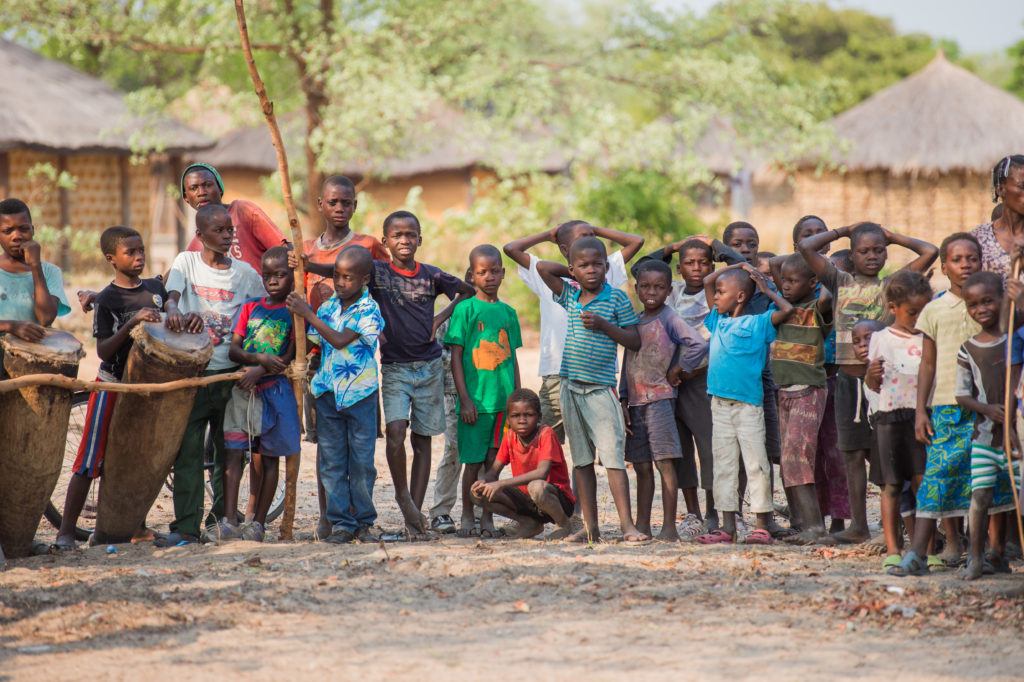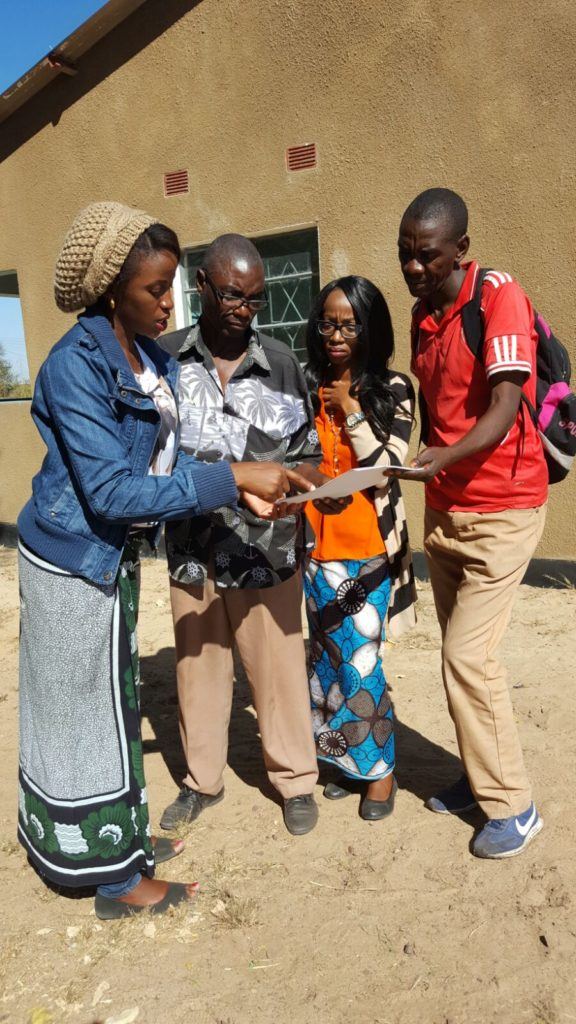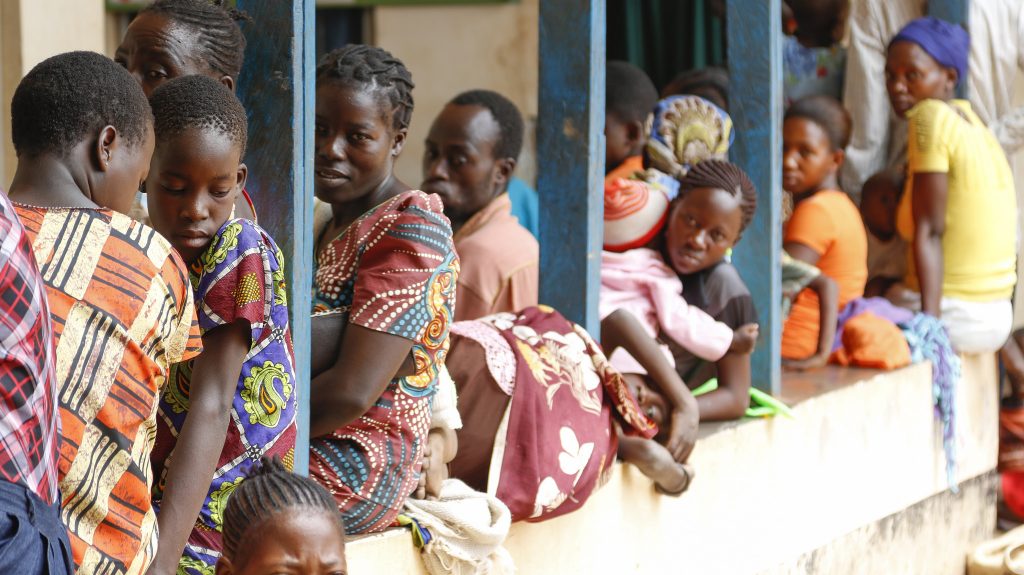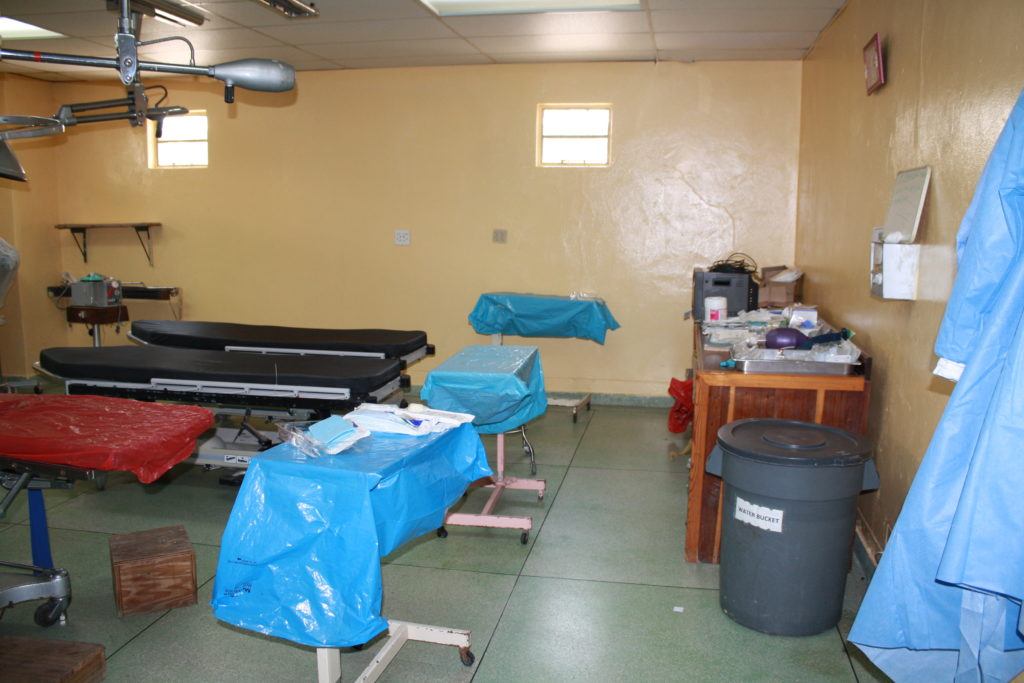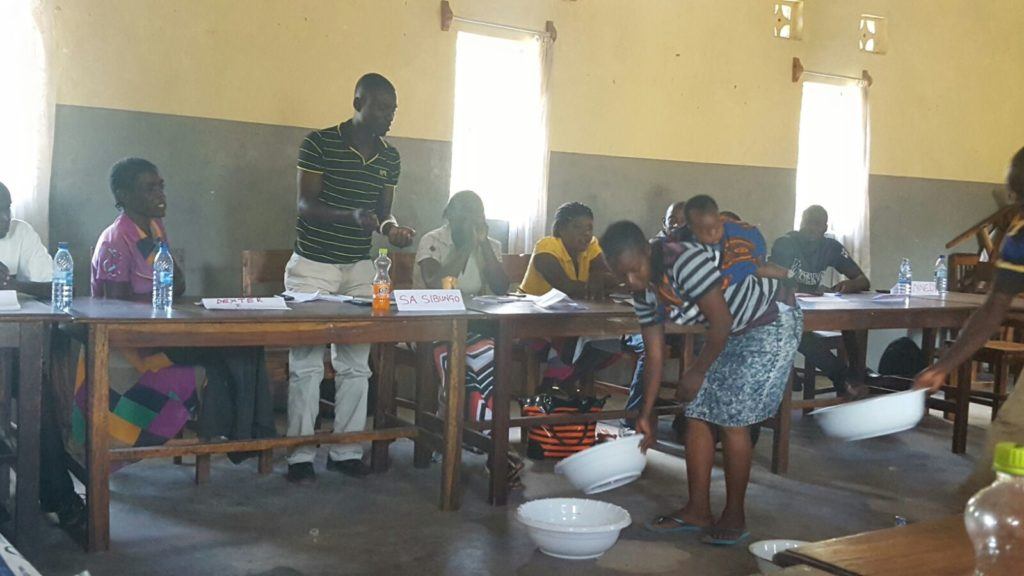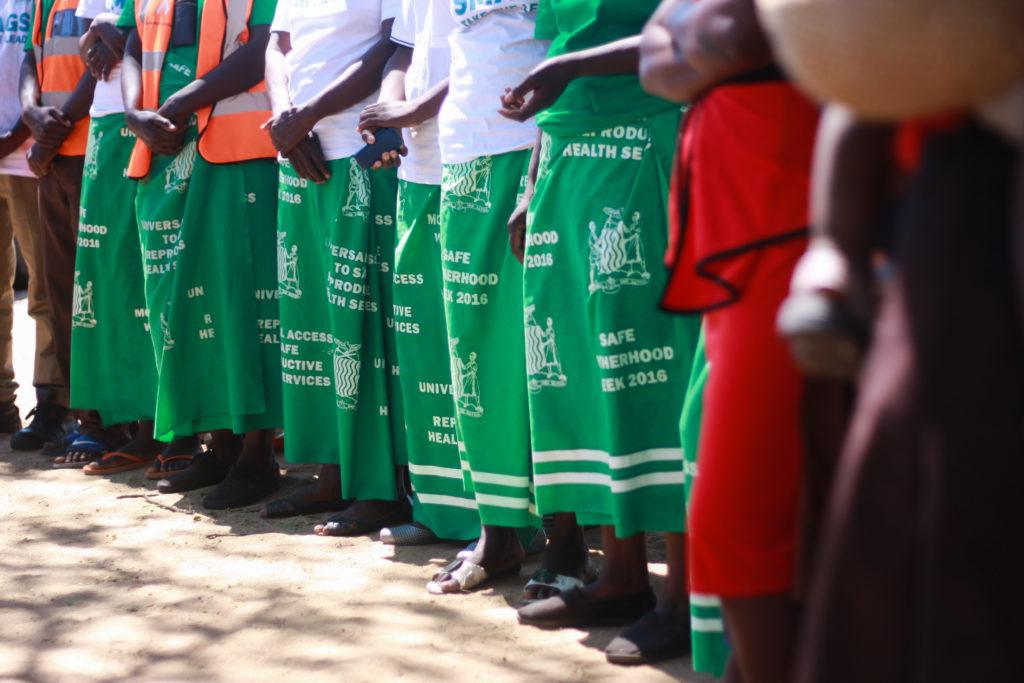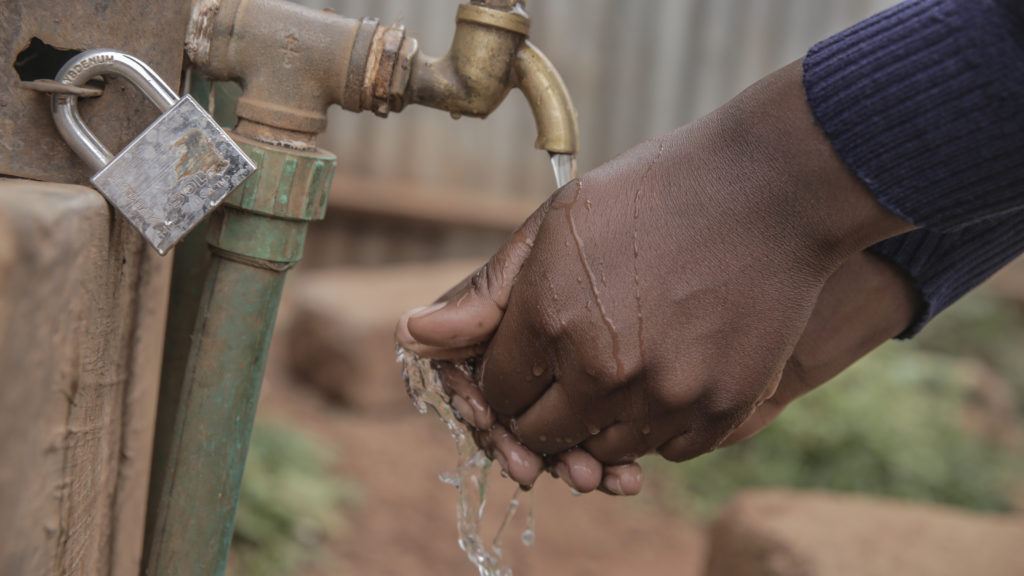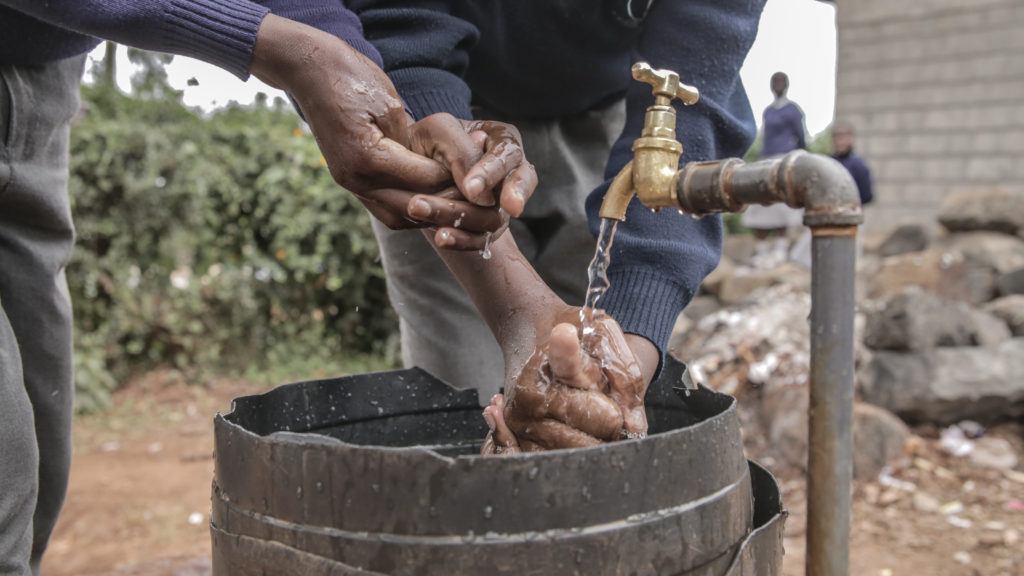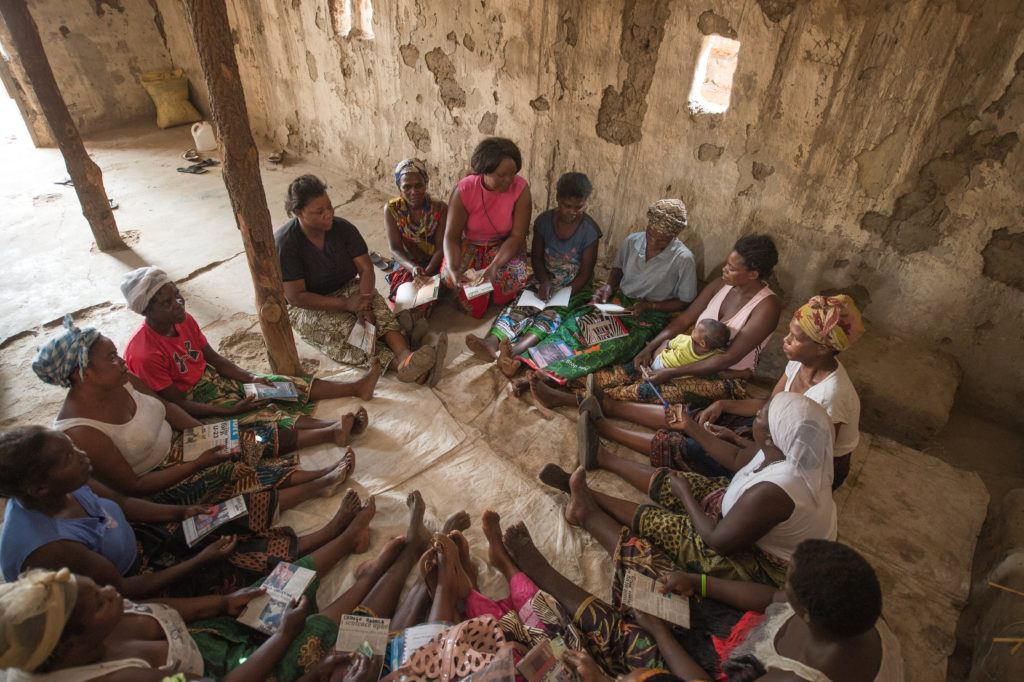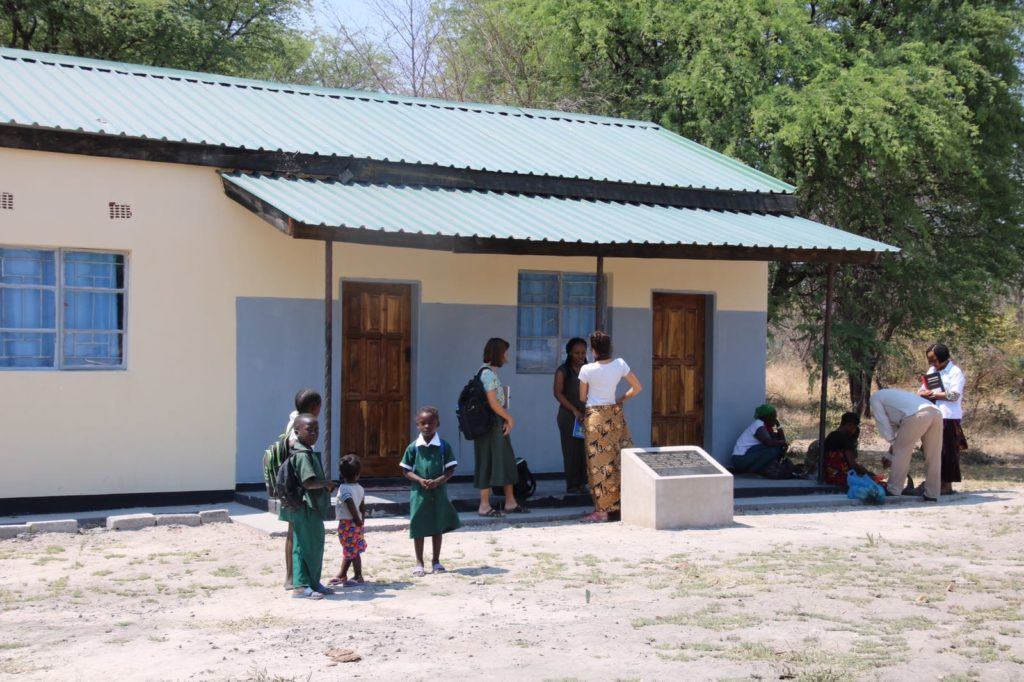A Year in Zambia
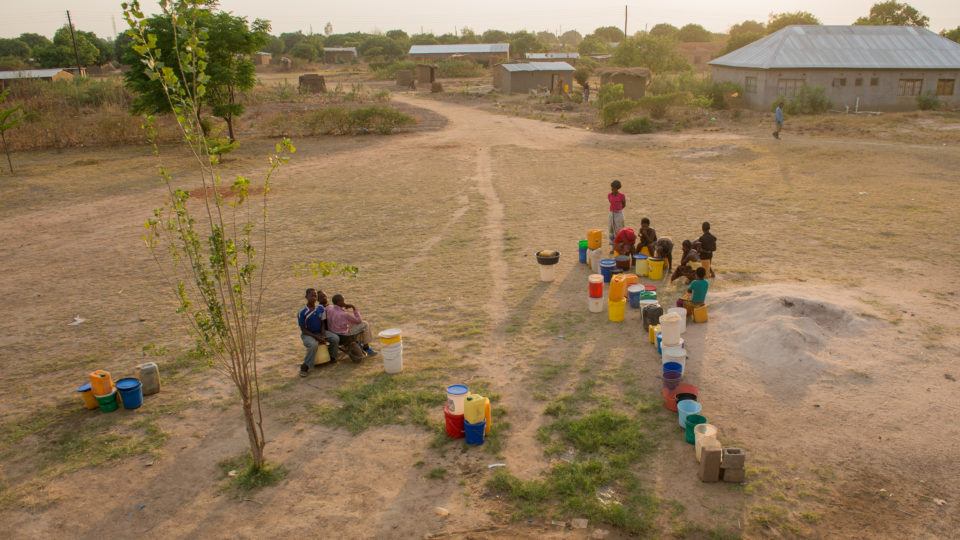
For Janet Choongo, it all began in Zambia.
She was born in Chikankata, Zambia and spent the early years of her life living very close to poverty. She witnessed first hand the challenges faced by the poorest – including the impact that a lack of access to food, clean water, and basic healthcare has on life chances and health. When she was still a young girl, Janet’s family- “one of the lucky ones” – moved to the United States for a better life. No matter how far away Zambia was, it has always remained in her heart and a part of her life.
Fast forward to 2016. Janet returned to Zambia as a Global Health Corps Fellow volunteer supporting CMMB’s Children and Mothers Partnership Project in Mwandi, Zambia. She believes her early life experiences led her to where she is today. We recently had the opportunity to speak with Janet about her year serving in this extremely remote and poor region of the Zambia.
Tell us about your time in Zambia:
Zambia is a special place.
Sadly, I was only there as a volunteer for one year. It just wasn’t long enough. And now that I am back home, I am just so eager to go back to Zambia. I really want to see what’s happening with the projects that I was part of. I suppose if there is a downside to volunteering, this is it; more often than not, you start something and never get to see how it ends.
But ultimately, you aren’t there to see what happens in the end. There is no “end” for the people living there. Life continues. As a volunteer, you work hard with the local people, listening and learning from them, and sharing what you can to make a positive difference. You try your best to build capacity so that things continue to progress long after you leave. But it’s hard not to be a part of it, to see it all happening.
Tell us about growing up in Zambia. How was it like your time in Mwandi.
I was young, so my memories are sporadic. But I remember that too many people lacked access to water in remote areas. There was only one hand pump that everyone in the village used. People, mostly women and girls, had to wait a long time to collect water and it was never enough. I also remember a mission hospital close by. It was similar to the Mwandi Mission Hospital. I have vivid memories of volunteers coming to support the hospital. What I remember is that when there were volunteers helping at the hospital, a lot more people would come from the villages to seek care. They would ‘rush’ in, traveling long, difficult journeys, to seek the care they desperately need.
I now understand this behavior better. It is linked to the fact that people living in these communities lose confidence in their health facilities. Poor infrastructure (i.e. no waste management, lack of water), insufficient numbers of skilled health professionals, lack of medicines and medical equipment have all led people to lose trust and confidence in their healthcare providers.
I heard terrible stories of people receiving the wrong diagnoses, or who after waiting hours and hours were turned away because the health facility didn’t have the necessary medical equipment to attend to an individual’s needs. In some cases, a lack of a skilled professional can lead to patients receiving the wrong dosages of medicine and suffering the consequences. In fact, my sister was one of them. Luckily, my parents had the money to take my sister to another hospital. Unfortunately, for most people living in my town that was not an option. Just like people in Mwandi, the people in my town could not afford to go anywhere else.
Perhaps the one story that really sticks out for me was when I became aware (as a young child) of the poverty. I felt guilty when I wore shoes to school because none of my friends had shoes. I remember after leaving home, before I got to the dirt road, I would take them off and walk barefoot like my friends.
Why were you drawn to CMMB?
It was the opportunity to work with children and mothers that really drew me to CMMB. I always wanted to work with women and children, especially because they are the most vulnerable and are too often left out. And let’s face it, mothers are the key. If you think about it, the guidance our mothers give really stick with us forever; good or bad. Mothers make so many of the decisions that impact children’s health so it is important they know what to look for and when to seek treatment.
I have come to understand that in order to touch the life of a woman, you need to equip her with the knowledge she needs to take charge of her life. By doing so, she is able to help her children, her community, her country, and ultimately her continent as a whole.
Is there one story that you will never forget from your time in Mwandi?
There are so many stories. Unfortunately, many of them are sad. Some of them were just witnessed from a distance. I remember watching an older woman, probably a grandmother, very sick bringing a sick child to the clinic. I watched them struggling, making the long journey to seek care. I saw them join the long queue of people sitting and waiting outside the clinic. The clinic was completely full. What made me most sad was the fact that there was only one person working at the clinic. He was not a doctor and yet he was responsible for all those sick people.
There were so many things going on at once and I had never experienced anything like it. It actually brought tears to my eyes. I remember thinking to myself, how does one person handle all this?
Another moment I remember vividly was my visit to another clinic in a surrounding town. When we traveled there it was raining so hard, we could barely make it through. I remember seeing a man walking along the main road, the water had gone up all the way to his knees and I suddenly wondered, what if instead of this man, it was a pregnant woman in labor?
Imagine you are nine months pregnant and you are trying to get to a health facility. There are no vehicles. You are walking. Now imagine it has rained so hard that the water is up to your knees. You are in labor, and need to get the clinic. But, the rain is so severe that cars cannot even pass. What do you do?
Is there a particular person that really stands out to you?
I can’t just pick one. But the community champions that I worked with every day are just so inspiring. Part of me feels as though I have a moral duty to make the work that they do a little easier. These individuals do not get paid to do the work they do. They are all volunteering.
And they are so passionate about what they do. The community champions feel as though they have duty to ensure their community has the opportunity to live healthy lives. They walk nearly three hours every morning to reach the people who need them. Most of them have their own businesses to manage on top of this volunteer work. Regardless of location or the conditions (heavy rains), the community champions travel to see their community members where they are.
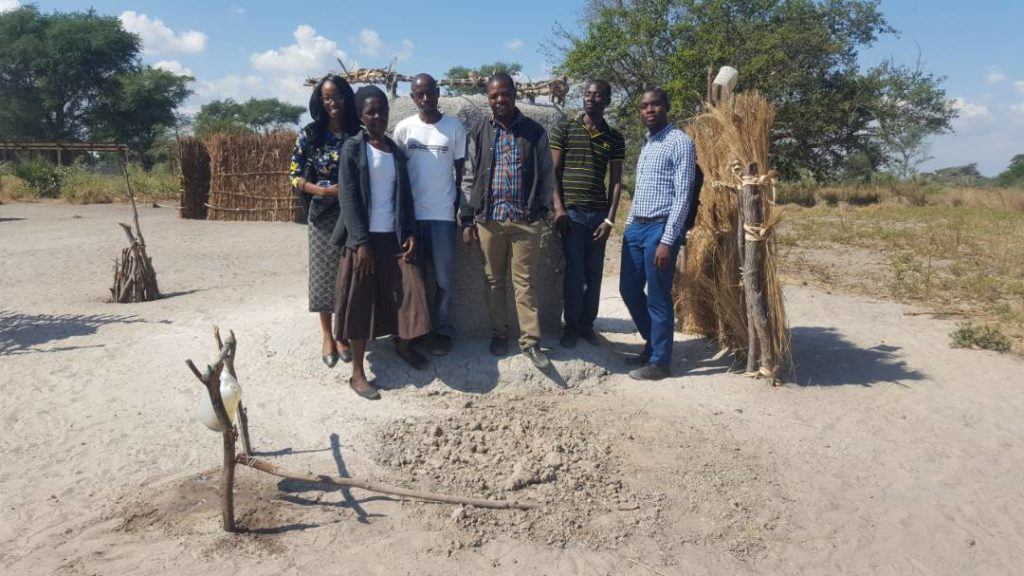
Janet stands with WASH community champions and trainers standing in front of a newly built pit latrine.
I have never seen people act so selfless and work so hard for the betterment of another person. Putting their own desires aside, just so everyone else can live happy and healthy.
The people living in the communities admire and look up to these champions – they are making a real impact in people’s lives. When I spoke to people in the communities I visited, many were able to recite the information they had learned and they were making an active effort to live healthier lives. The persistence of the community champions is admirable and their work ethic is one of a kind. Through rain and over difficult terrain, they make the effort every day to reach the people.
This experience was a life check. It is one thing to read about the struggles people face. But, when you watch their struggles play out, it is a different story altogether. It is hard.
What were some of the biggest challenges you faced?
At times, the weather was a huge challenge. When it rains, it rains. Already difficult roads become impassable by vehicle and it makes getting where you need to go extremely challenging (sometimes impossible). And when you can’t get there, they can’t get out. This is a huge issue.
Another big challenge was the fact that many of the people I worked with – the community champions – never had access to education. This impacted the way they collected data and reported back. What I found was that building real relationships with each and every one of these community health volunteers, really helped a lot. I became less dependent upon incomplete written reports about the work they were doing in the fields, and instead relied on our face to face conversations.
As my journey continued, I realized I made more of an impact by just interacting with community champions, especially when I was not on “official business”. I often took time to just chat, to ask them about the challenges they were facing, about their lives, their children, their hopes and dreams. Because of this I was able to build friendships with people. They felt comfortable enough to be honest with me about their situations and hardships.
Problems came up and because they trusted me, we found ways to talk about things and find ways to fix them. I knew I couldn’t fix everything, but I knew at the very least, I could make the work they did a little easier.
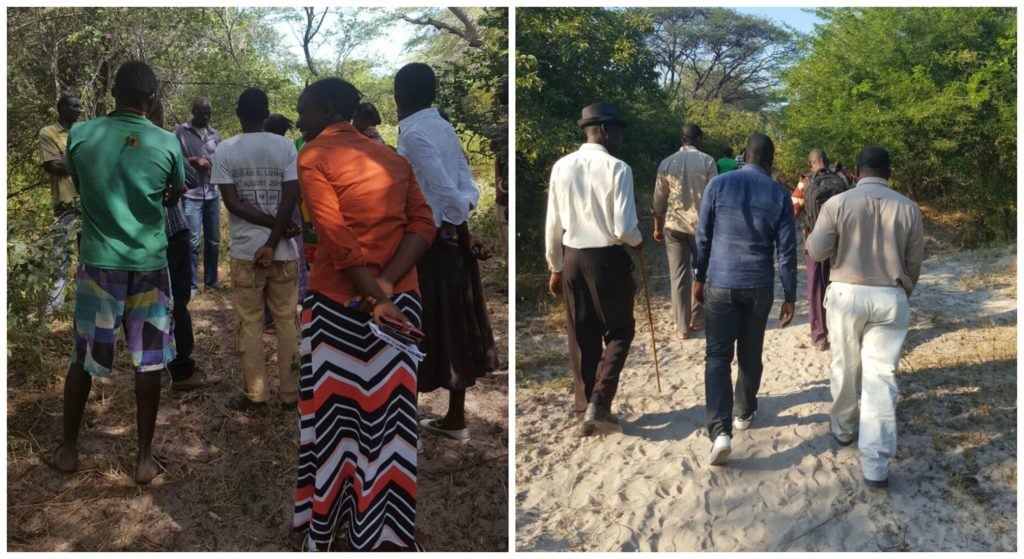
CMMB Champions and community health workers, take the community on a ‘walk of shame’ to encourage a change of behavior.
What other challenges do champions face interacting with the communities?
Well the content that the community champions and I were trying to deliver is not the easiest of subjects. It has to do with sanitation and hygiene practices. In places where sanitation options are limited, people use the great outdoors. In places where water and soap is not easy to access, hand washing practices falter. The truth is that these are not comfortable topics. No one wants to talk about open defecation.
But it’s important that we talk about it. So we strive to trigger action in communities; we don’t tell them what to do, but we trigger them to take action using a variety of methods.
Can you tell us a little more about the triggers?
We follow the community lead total sanitation approach.
Community Led Total Sanitation (CLTS) is an innovative methodology for mobilising communities to completely eliminate open defecation (OD). Communities are facilitated to conduct their own appraisal and analysis of open defecation (OD) and take their own action to become ODF (open defecation free).
We want to help communities realize the consequences of poor sanitation so that they become part of the solution.
One activity is called the Walk of Shame. This is where we walk with members of the community and point out the routines (e.g. open defecation) that contribute to poor health. After the walk, we sit down and have a group discussion. As a result of seeing these realities they are triggered to come up with plans to make their community cleaner and healthier.
It isn’t easy
I remember one particular community that was very difficult to trigger. One of the elder men of the community expressed that he felt insulted that we were there.
He was upset that we were discussing water, sanitation, and hygiene (WASH) activities in front of the whole community. Because the elder felt insulted, it was very difficult to get the rest of the community to engage with us. If the elder does not accept something, the community will not accept it.
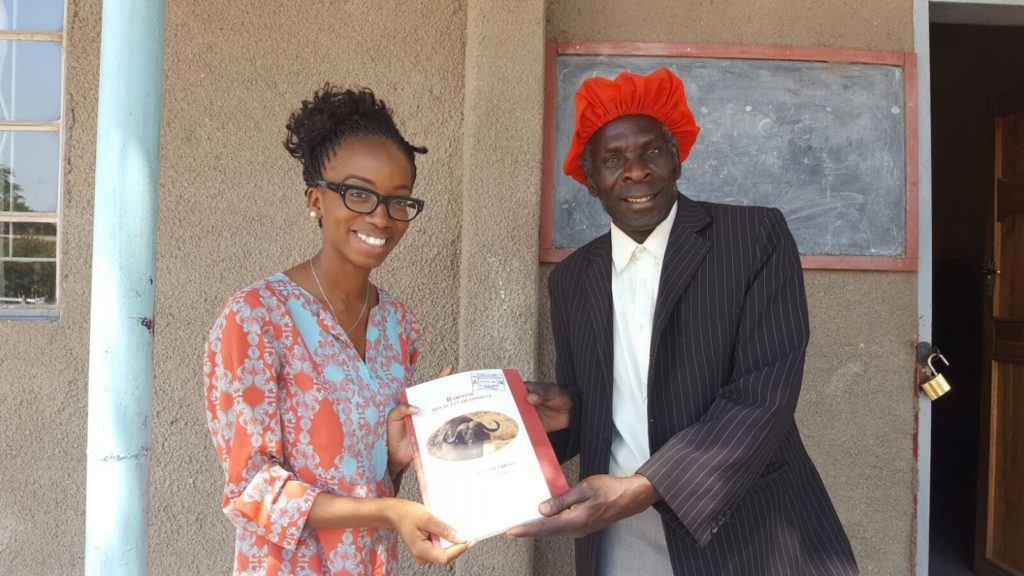
Janet with the Induna (community elder). Here she was given the Mwandi Royal Establishment Strategic Plan book
The lesson learned was the importance of making every member of a community, including the elder, involved. The induna (an individual who is linked to the chief) needs to be involved, the champions need to be involved, and the counselor needs to be involved. If the community feels that all these people are coming together for one cause, the community is more willing to engage and be part of the change.
Another challenge that needs to be overcome, was the disbelief in the information we shared. People have been drinking contaminated water and using the outdoors their whole lives, and they don’t understand the direct impact that these behaviors have on their health. For example, they honestly did not know that diarrhea was caused by water contamination. And sharing correlation data doesn’t work. They struggle to see the need for change.
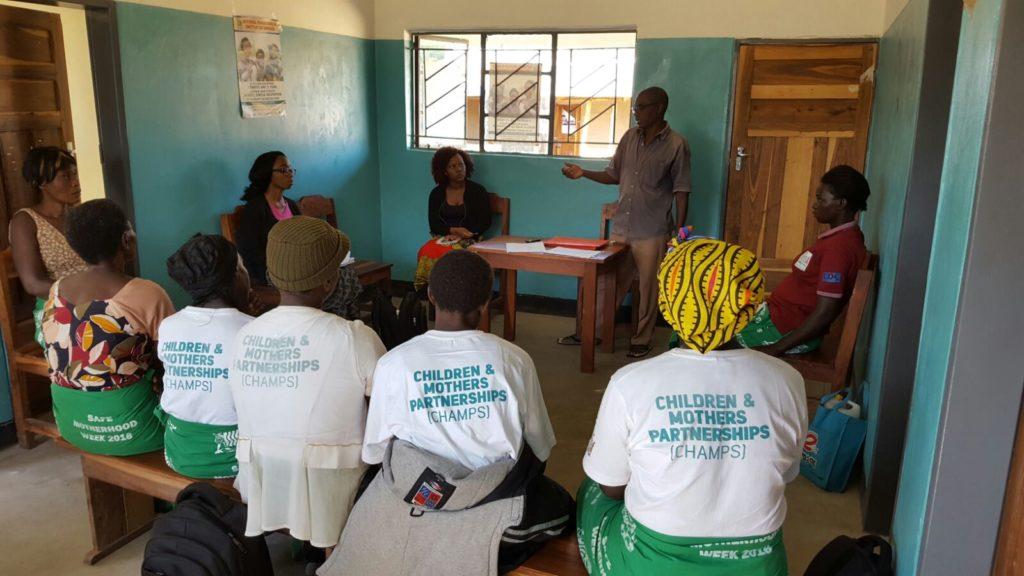
A meeting with the Safe Motherhood Group community health workers. They were trained on how they can incorporate WASH and Nutrition in their sessions with members of their community.
The most important tool we have to combat this are our community champions. We make it a priority to make sure our champions are able to understand the mindset of communities who do not see the need for change. If the champions understand, they are able to work together with the Induna and the headman to convince the community to make the change for themselves.
How do you respond to the communities who do not see the connection between water contamination and poor health.
We educate them in ways that help them physically see the connection between behavior and health. During the walk of shame we show them open defecation contaminates the water they drink, the soil they plant in, and ultimately the food they eat and how this leads to illness. We show them how their water gets contaminated when they don’t use toilets. It brings out disgust and fear and triggers them to want to make a change.
What happens next?
The community carries their plans out independently. For example, we will help a community come up with a plan to install toilets but we will not help them install the toilets. We will demonstrate how to install them but ultimately, it is up to the community to see the plan through.
We also emphasize the fact that change has to be at a whole community level. If one person chooses not to use the the latrines and continues to use the open, the whole community is at risk of getting sick.
What would your advice to future volunteers be?
Reflecting back on the lessons I learned, I think it is important for volunteers to understand that you won’t change everything at once.
This is the mentality I went in with and I very quickly realized that it doesn’t happen this way. Progress happens quite slowly. Sometimes you will only touch one life. But that one life can mean a lot. That one person is likely to touch the lives of others and so your indirect impact can never really be measured.
Second, it is so important to take the time to listen.
The communities and the community volunteers can tell you a lot. It is easy to think that you know exactly what these communities need. As a public health specialist, I have learned to always ask first. Ask the community what it is that they want. If they are on board, things move in the right direction.
Finally, really enjoy the experience.
Not everything you do will go as planned. Some things will and some things won’t. Keep the main goals in sight. Enjoy the journey.
Any other moments you would like to share?
Let me tell you the story of Baby Grace.
The photo above is the mother’s shelter in Mwandi. It was built with gifts from CMMB’s amazing and generous donors and partners. The mother’s shelter provides a safe place for expectant mothers – women who live very far from health facilities – to await the delivery of their babies.
When women live far from health facilities and don’t have access to transport, they often fail to receive essential prenatal care (which are key to identifying risks) and many have no choice but to have babies at home (once labor starts, it is nearly impossible for women to get to facilities far away). Tragically, when complications arise, lives of both mothers and babies are put at risk.
Baby Grace’s story is a happy one. She was born at the mother’s shelter, her mother supported by a skilled nurse. The mother was so grateful for the care, including the baby package she received with all the important essentials. And then, hours after the baby’s birth, the mother asked me to name the baby! Grace. It’s my middle name. These are the beautiful moments I will treasure always. To be at the start of a life.
Grace, the free and unmerited favor of God.
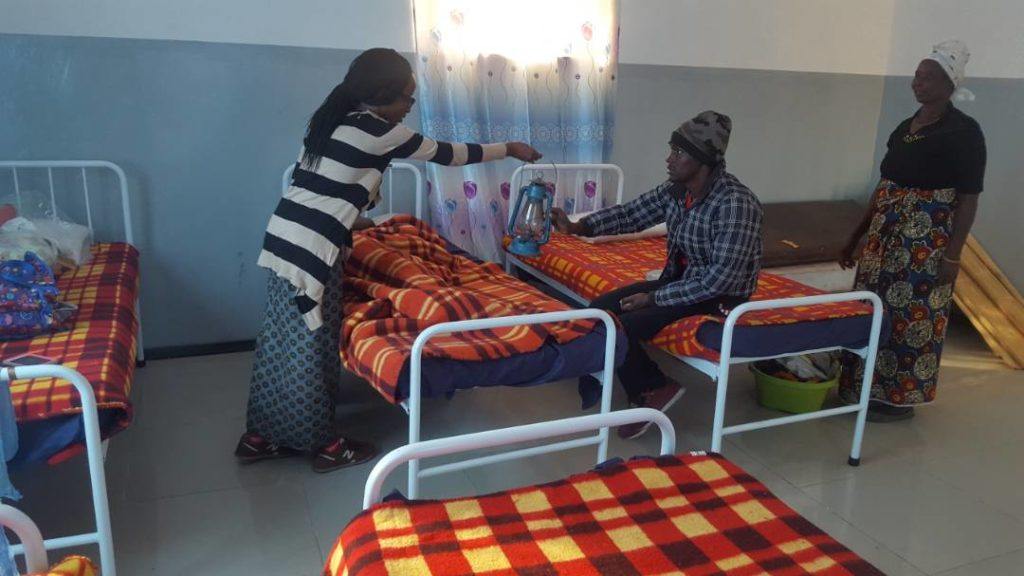
Here the nurse (man wearing hat) explains that he delivered Baby Grace by oil lamp (they didn’t have electricity).
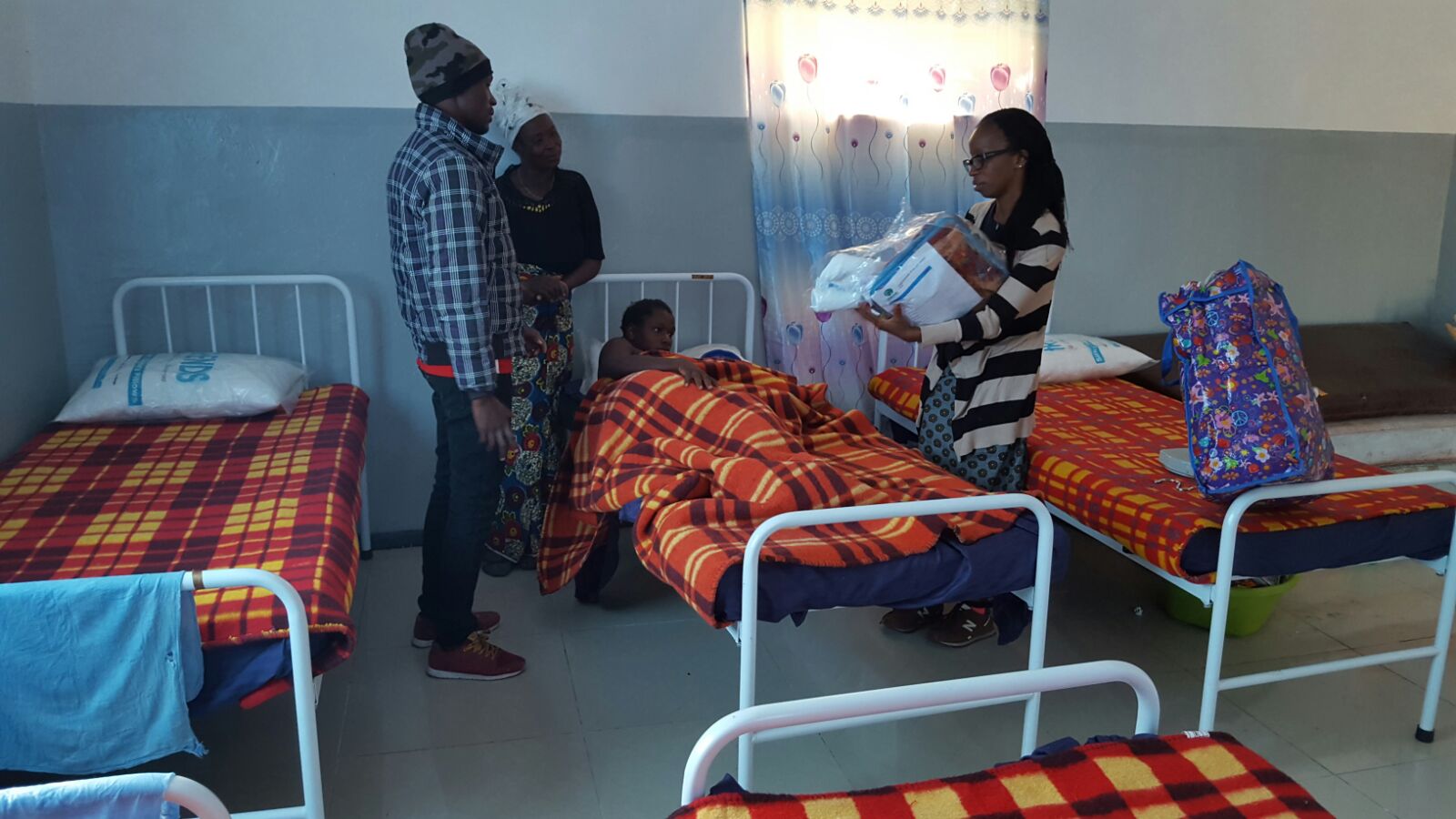
Janet presents Grace’s mother with a baby pack. CMMB gives baby packs to women who deliver at the health facility.
What is it like being back home?
Being back is great. I have had a chance to breath a little after months and months of being on the go. I needed this time to take a step back and really contemplate how things have changed.
Because of this experience, I understand my purpose. I was given the opportunity to figure out what I want to do with my life.
My year of volunteering gave me this answer. I needed the chance to grow my skills in different areas and help others. What I didn’t realize was that my time in Mwandi would reveal my purpose in life. If I really think about it, it just confirmed what I always knew it was.
I am so much happier now. I hope to return and continue working in areas like Mwandi. I knew I wanted to work with under-served population. But, I didn’t know if it would be through the legal field or public health. Having the opportunity to actually spend a year in the field, confirmed that I will spend the rest of my life helping the under-served through public health.
When you actually enjoy what you are doing it doesn’t feel like a job anymore. I am changing life, I am touching life and I am content.
How has this experience changed you professionally and personally?
Professionally, I have switched careers completely. I am not going to pursue the legal field anymore. I am going to continue on with public health. I will pursue international development because I love the implementation and I love being in the field.
Personally, I think I have become much more thankful for the things that I have. I am looking at life through a different lens. As a public health worker, I look at numbers all the time. But those numbers represent individuals to me. Percentages now translate into real people to me and I can picture each and every one of their faces.
Finally, I have realized how brave and strong I am. When you travel to an area that you have never been to, you wonder how you will survive.
What’s next?
When I left Zambia, I had very strong feelings about what I wanted to do next. But I told myself that I would take three months and just be back. I think a common mistake we make is that we move on emotion, we move on impulse. I really wanted to take time and see if the feelings I had as I was leaving Mwandi and when I first got home, if they would be the same after three months? Or was this all an emotional response. I really wanted that time to settle back and see – do I want to follow this path. I really wanted to be able to answer the question, Is this really what I want to be doing?
Like I said, now I know for sure that this is what I want to do with my life.
So, I started a fundraiser. I am reaching out to friends, family, and interested supporters to help Zambia’s amazing community champions reach the people who need them the most.
The community champions have been instrumental in lowering the burden of many diseases in the communities that they serve. I want help empower them to keep up the great work by providing them with the kind of gear (rain boots, coats) that makes life a little easier during the rainy season.
My other hope is to find a job in Zambia or in Kenya and do the same thing that I was doing with the people in Mwandi.
This is where I am at the moment. I am just waiting to see where the next door opens.
Interested in becoming a CMMB volunteer?
